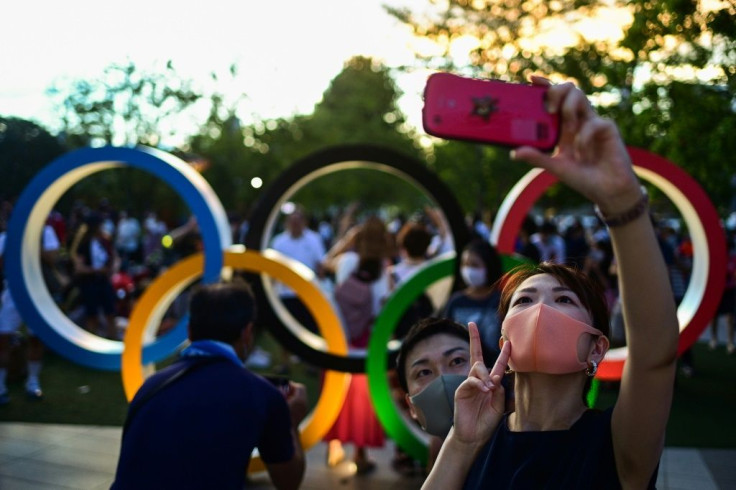Ex-Olympian Reveals Truth About Sex In Olympics: ‘It’s Inevitable’
KEY POINTS
- Ex-Olympian Susen Tiedtke said sex has "always been an issue" in the Olympic village
- Sexual activity is discouraged before games because "the body first has to recharge itself energetically," Tiedtke says
- Around 160,000 condoms will be handed out at the Tokyo Olympics
Following speculations that the cardboard beds in the Olympics were "anti-sex," former Olympian Susen Tiedtke has opened up about the sex culture in the international event.
Upon arriving in Tokyo, athletes found that their beds were made out of cardboard, leading them to wrongly suggest that they were made to prevent Olympians from having sex amid the COVID-19 pandemic.
But for Tiedtke, sexual activity in the Olympic village is inevitable no matter what.
“[The sex ban] is a big laughingstock for me, it doesn’t work at all,” Tiedtke told Bild. According to the former Olympian, “sex is always an issue in the village.”
“The athletes are at their physical peak at the Olympics. When the competition is over, they want to release their energy,” Tiedtke explained.
Olympic officials later clarified that the cardboard beds were placed in the athletes' rooms because of their sturdiness and sustainability and not because they intended to prevent athletes from engaging in sex.
The former long jumper said that coaches strongly advise against having sex before competing to ensure that athletes were at their peak during the events.
“The athletes are at their physical peak at the Olympics. When the competition is over, they want to release their energy,” Tiedtke said. "When you have sex, the body first has to recharge itself energetically.”
But Tiedtke — who met her ex-husband Joe Greene, a fellow long jumper, during the 1992 Barcelona Games — revealed that after the games, many athletes would have sex, sometimes into the early hours of the morning.
“You always heard the ‘party’ of the others, sometimes you could hardly sleep,” she said. “There is one party after another, then alcohol comes into play. It happens that people have sex and there are enough people who strive for that.”
The Olympics has been handing out thousands of free condoms to athletes since 1998. This year, around 160,000 condoms will be handed out at the Tokyo Olympics, but rather than use them, organizers hope athletes would bring them home to spread the message of safe sex.
“Our intent and goal is not for athletes to use the condoms at the Olympic Village, but to help with awareness by taking them back to their own countries,” the Tokyo Olympics Organizing Committee said in a statement to Japan Today.
Meanwhile, a few members of the Australian Hockeyroos field hockey team recently put the controversial beds to the test to see if they were sturdy enough to accommodate activities fit for an Olympian, the New York Post reported.
Rachael Lynch, the Hockeyroos' goalkeeper, posted two photos on Twitter showing her and her teammates jumping and sitting on one of the beds.
“Following many questions about our cardboard beds, we thought we should put them to the test,” Lynch wrote on Twitter. “Can confirm they are strong enough for activities!”
Following many questions about our cardboard beds, we thought we should put them to the test 😜 Can confirm they are strong enough for activities! @AUSOlympicTeam @Channel7 pic.twitter.com/1bbfQf8kVj
— Rachael Lynch (@RachLynch27) July 20, 2021
One Twitter user commented, “Had to break it to yous. But that isn’t how you have sex,” to which Lynch replied, “Oh oops.”

© Copyright IBTimes 2025. All rights reserved.





















